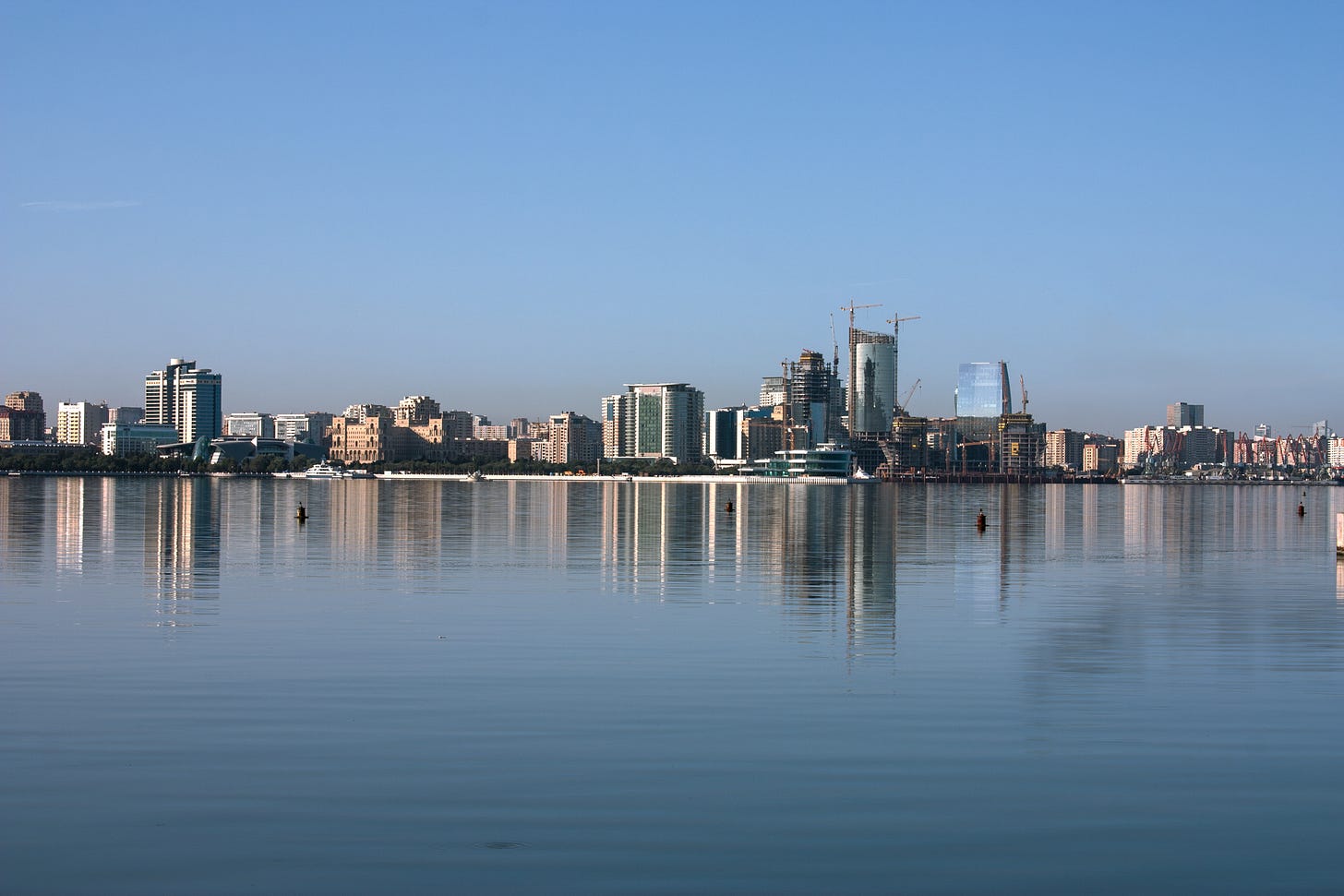In the span of just a few days, Baku has found itself at the centre of an intense flurry of diplomatic activity. This surge of high-level visits signals how Azerbaijan is punching well above its traditional weight, demonstrating an agility and strategic sophistication uncommon for a country of its size.
Deepening Ties with China: Strategic Partnership Upgraded
President Ilham Aliyev’s recent official visit to China on 22 April 2025 marked a pivotal upgrade in bilateral relations. The elevation of ties from a “strategic partnership” to a “comprehensive strategic partnership” is more than symbolic. Visa waivers and a range of new agreements underscore an expanding breadth of cooperation, including infrastructure, technology, and energy.
China’s Belt and Road Initiative (BRI) continues to be a framework for engagement, and Azerbaijan’s role as a logistical bridge between East Asia and Europe is crucial. By formalising stronger ties with Beijing, Baku simultaneously diversifies its foreign policy portfolio and strengthens its hand against any potential Western pressure. It is also a clear signal to Moscow and Tehran: Azerbaijan is not solely reliant on any one power bloc.
Rebooting Relations with the European Union
On 25 April, President Aliyev hosted Kaja Kallas, the EU’s newly appointed High Representative for Foreign Affairs and Security Policy, at his summer residence. This visit marked a significant departure from the previous EU leadership’s often critical stance, particularly that of Josep Borrell.
Energy cooperation dominated the discussions, but the scope now goes beyond traditional natural gas supplies. The focus includes green energy projects, notably the transmission of renewable electricity across the Black Sea to Europe, a strategy that meshes with the EU’s Green Deal aspirations.
Equally significant was the resumption of negotiations on a new Partnership and Cooperation Agreement (PCA). Originally signed in the late 1990s, the PCA expired in 2009 but has been extended annually. After Azerbaijan rejected the EU’s Association Agreement in 2011, efforts to renegotiate were formally restarted in 2017. However, talks stalled due to the COVID-19 pandemic and the Second Karabakh War in 2020. Kallas’ visit signals the EU’s readiness to “turn the page” and foster a more pragmatic, interest-driven partnership.
This strategic recalibration by Brussels acknowledges Azerbaijan’s critical role in Europe’s energy diversification strategy and broader efforts to enhance connectivity with Central Asia.
Iran-Azerbaijan Rapprochement: A Delicate Reset
Adding to the diplomatic momentum, Iranian President Masoud Pezeshkian visited Baku on 28 April. As an ethnically Azerbaijani figure seen as a representative of Iran’s “liberal” political faction, Pezeshkian’s visit carried immense symbolic and practical importance.
The two sides signed seven memoranda of understanding spanning political consultation, transport, health, media, cultural exchange, and investment. Pezeshkian’s statements on the Zangezur Corridor and the Armenia-Azerbaijan conflict sounded more accommodating than Iran's typically hardline positions, emphasising respect for "territorial integrity" but within a softer diplomatic framework.
However, this is not a radical break. Iran remains deeply concerned about any transport corridor that could marginalize its role in the Caucasus. Pezeshkian’s massive 120-person delegation underlined Tehran’s seriousness in stabilizing ties, but deep structural mistrust remains.
Since 2020, Iran and Azerbaijan have endured three rounds of escalation:
First Escalation (Late 2021): Triggered by Iran's military exercises near the Azerbaijani border over the Zangezur Corridor project, tensions cooled through diplomatic engagement by early 2022.
Second Escalation (Early 2023): Sparked by the deadly attack on Azerbaijan’s embassy in Tehran, tensions de-escalated after late 2023 through revived economic projects.
Third Escalation (Late 2023-Early 2024): Iran’s military posturing and concern over Azerbaijan-Israel relations reignited frictions, but the May 2024 joint inauguration of the Giz Galasi dam symbolised a thaw.
Pezeshkian’s visit must thus be viewed as the latest phase in a precarious, cyclical relationship of confrontation and rapprochement.
A Unique Diplomatic Intersection: Iran, Israel, and Turkey
Few capitals in the world can claim to host Iranian, Israeli, and Turkish leaders in such quick succession — Baku, in May 2025, will. Following Pezeshkian’s visit, Israeli Prime Minister Benjamin Netanyahu is scheduled to arrive on 8 May, and Turkish President Recep Tayyip Erdogan later in the month.
Limits and Opportunities for Azerbaijani Mediation
While Azerbaijan’s facilitation between Israel and Turkey appears viable, supported by U.S. backing and Ankara’s interest in resetting ties with Washington, any attempt to broker between Israel and Iran would be fraught with risk.





